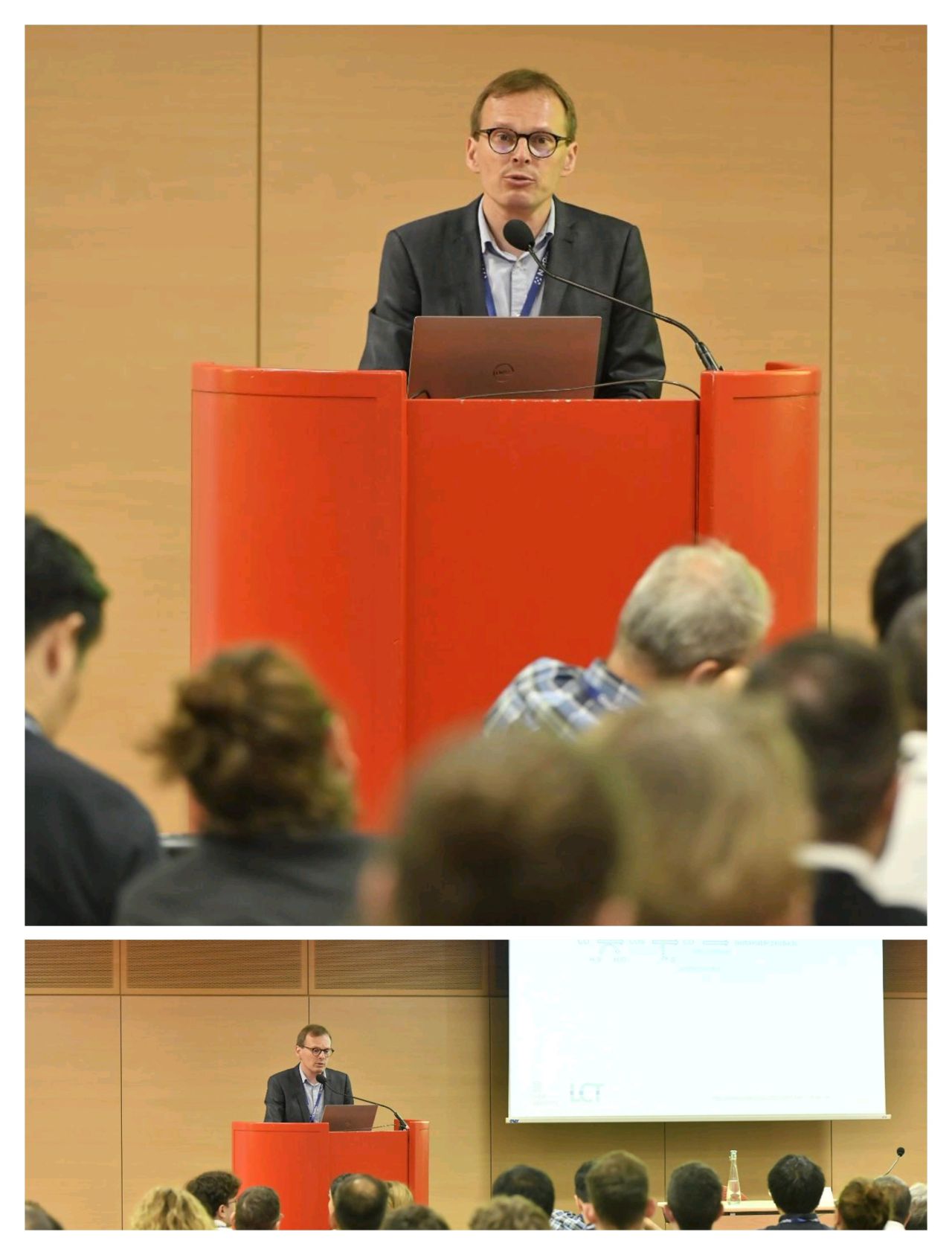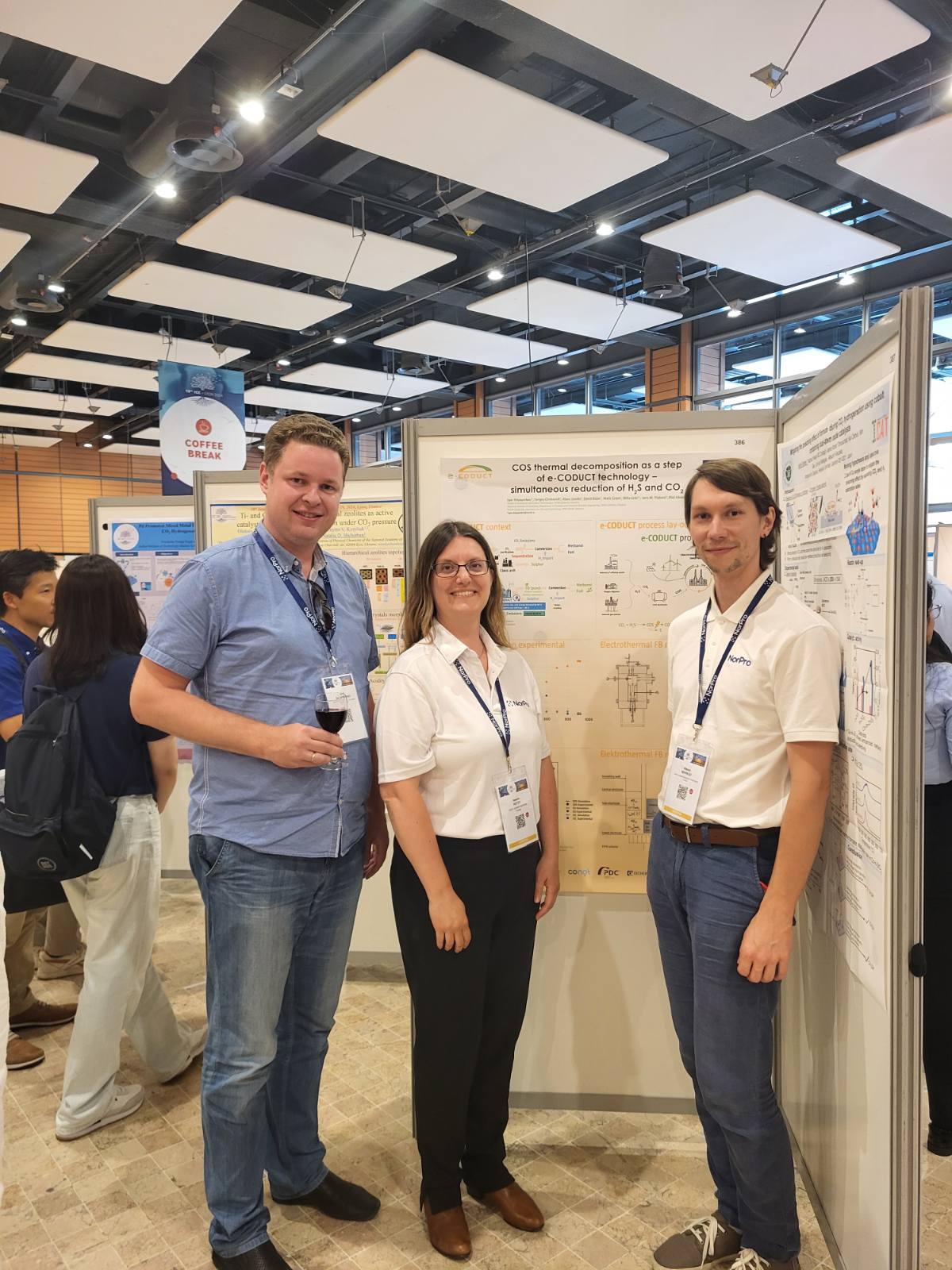The e-CODUCT project consortium took part in the 18th International Congress on Catalysis (ICC) in Lyon, France, from 14 to 19 July 2024. Our team, composed of experts from Ghent University, Saint-Gobain, ENSICAEN (CNRS), the National Institute of Chemistry and CONOT, presented ground-breaking research results in two insightful posters and a keynote lecture by Prof Joris Thybaut. The ICC is an important event that brings together between 1,500 and 2,000 people from the catalysis community every four years. ICC 2024 was organised by the French catalysis community. In the spirit of cross-fertilisation between disciplines, worldwide societal challenges such as environment, energy, mobility and circular economy were addressed in invited lectures and dedicated sessions in line with the main conference slogan “Roots and wings for a better world”. Among the key technologies presented was e-CODUCT, a pioneering technology development in the field of CO2 reduction and climate-neutral production.
In the presentation, Prof. Thybaut highlighted the topic Electricity is in the catalyst: a reaction engineering approach to gas treatment and valorization. The focus of keynote speech was on the use of an ElectroThermal Fluidized Bed (ETFB) reactor for endothermic reactions. This reactor design, driven by electricity, eliminates the heat transfer limitations of traditional methods by generating heat directly within the reactor. The e-CODUCT project leverages this technology for the simultaneous conversion of CO2 and H2S into COS, which is then decomposed into CO and elemental sulfur, with further upgrades to low-carbon fuels and products. This innovative approach provides a sustainable alternative to traditional fossil fuel-based processes, significantly reducing carbon emissions.
The topic of “COS thermal decomposition as a step of e-CODUCT technology – simultaneous reduction of H2S and CO2” was addressed in a poster session presented by Dr Igor Shlyapnikov from CONOT with contributing researchers from NIC and UGENT. The research presented at ICC 2024 focuses on e-CODUCT technology for the simultaneous reduction of H2S and CO2, both widely used by-products in refineries and the petrochemical industry. The process involves the conversion of these gases into COS and the subsequent thermal decomposition of COS into CO and elemental sulphur. Experimental results show that higher temperatures (800-1200°C) significantly improve the decomposition of COS and favour the formation of CO and sulphur. This novel approach solves the challenge of acid gas treatment and provides a sustainable method to produce valuable chemicals and low-carbon fuels. The results will help to optimise the design of an electrothermal fluidized bed reactor for this process.
The second poster deals with the topic “Alternative to Claus process through COS as intermediate. Part 1: CO2 and H2S competitive adsorption on zeolite 13X” was presented by Dr Hélène Rétot and Dr Alexey Novikov Saint-Gobain / NORPRO, who collaborated with researchers from LCS/CNRS ENSICaen. The study investigates an alternative to the Claus process for the treatment of acid gases and focuses on the competitive adsorption and reaction of CO2 and H2S on zeolite 13X. The aim of the research is to develop a two-step e-CODUCT technology that involves the conversion of CO2 and H2S to COS and then the conversion of COS to CO and elemental sulphur. The experimental results show that H2S is more strongly adsorbed on zeolite 13X than CO2, with higher desorption temperatures indicating a dissociative adsorption mechanism. Injection of CO2 onto H2S-preloaded catalysts leads to the formation of COS and water, demonstrating the feasibility of this approach. This novel method provides a promising pathway for the simultaneous reduction of CO2 and H2S and thus contributes to the decarbonisation of industrial processes.

